A new text in Vesmír
published 2023-01-13
Where did all Czech chemists disappeared? The questions is a title of a new article by Michal in the Czech popular science magazine Vesmír. The question is about the recent list of Highly Cited Researchers published annually by a British-American company Clarivate. The question is about an observation that contrary to past years, there are no chemist anymore in the list and also about how the situation is related to the newly adopted qualitative criteria filtering out the potential awardees. The text in Vesmír is inspired by the Retraction Watch report "Why misconduct could keep scientists from earning Highly Cited Researcher designations, and how our database plays a part." Recommended for non-Czech speakers.
full text: MH Kolář, Kam se poděli čeští chemici? (in Czech)
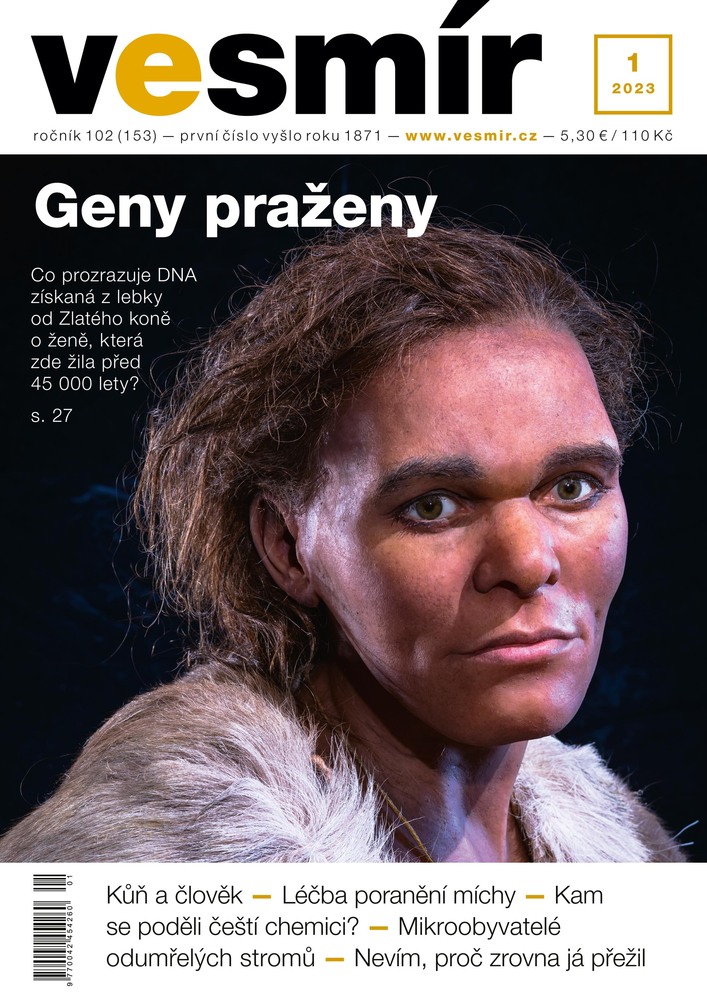
Two GAČR grants approved
published 2022-12-06
We are excited to announce that our team at UCT Prague has been awarded two research grants from the Czech Science Foundation (aka GAČR) to further our study of ribosomes and protein synthesis. We are grateful for the support and look forward to the coming three years.
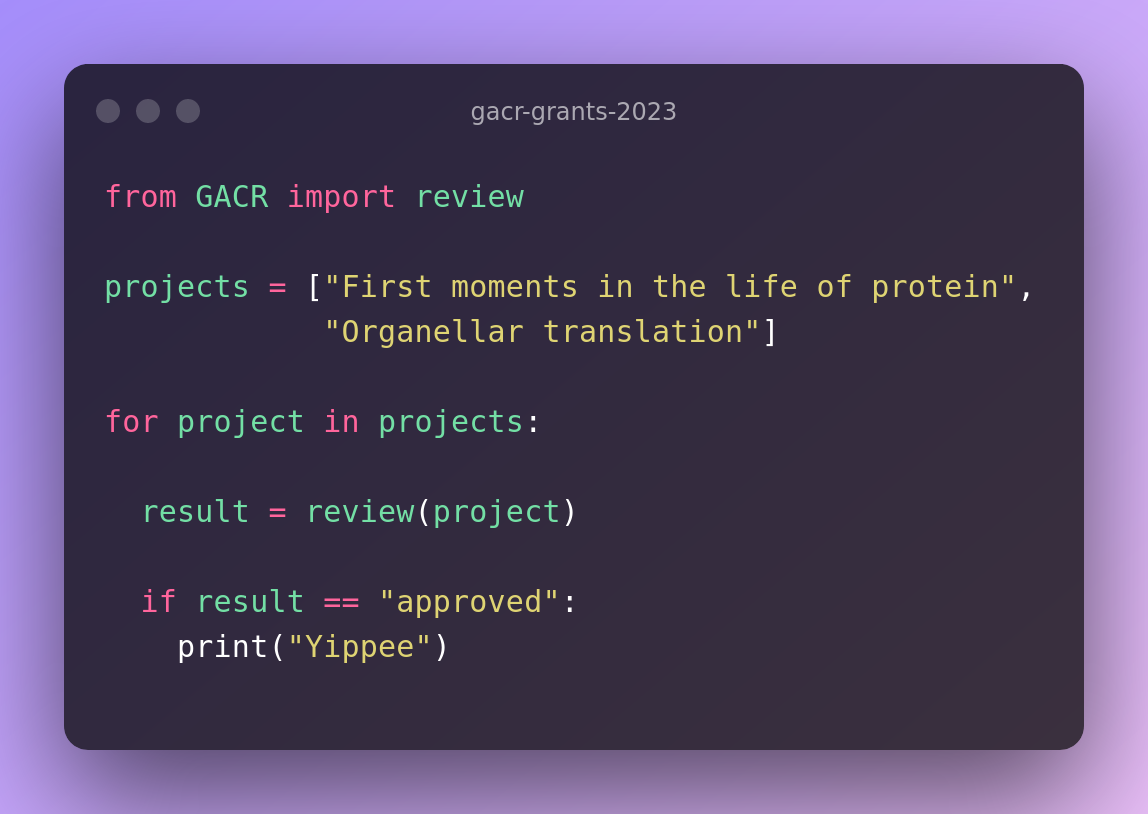
Attending IT4I User's Meeting
published 2022-11-29
Recently, three members of our research group attended the annual User's meeting of the IT4Innovations, which was held in Ostrava at the largest supercomputing center of the Czech Republic. The conference provided a valuable opportunity for the team members to present their latest findings on the role of protein structure dynamics engage with leading experts in the field in Czechia.
During the conference, our researchers had the chance to attend a series of lectures and a poster session covering a wide range of topics across all fields of computational science. Hugo McGrath, an undergraduate student, substituted Michal, who stayed at home due to COVID, gave a talk about long-distace allostery within the bacterial ribosome recently published in the Biophysical Journal. Hugo also presented a poster on the same topic. A PhD candidate Felipe Nepomuceno presented a poster on the computational modelling of peptide dynamics in carbon nanotubes, and an undergraduate student Petr Linhart presented a poster about MD simulations of disordered fragments of ribosomal proteins. According to the guys, they best enjoyed the evening poster session with a strong networking environment (aka free beer).
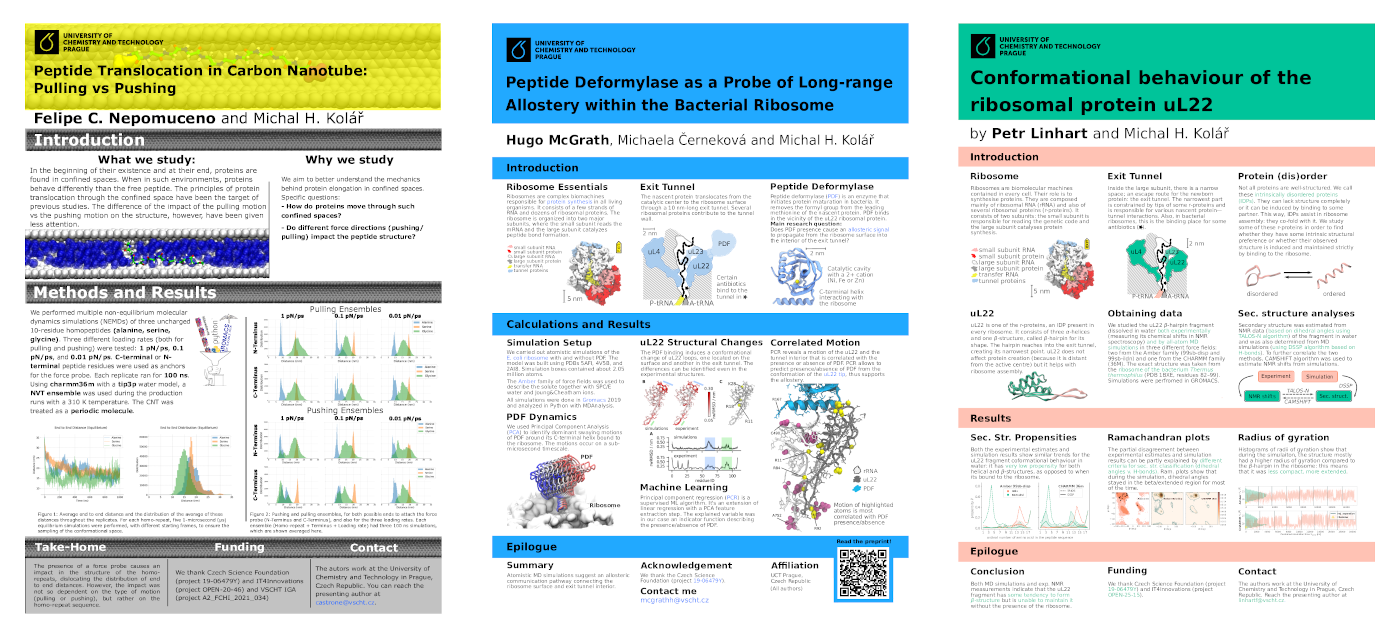
Studying a long-range allostery through the ribosome
published 2022-11-01
Hugo started studying a binding of peptide deformylase (PDF) onto the ribosome surface during his bachelor degree. The project turned promising, so we run all-atom MD simulations of the entire ribosome to better understand what effect the PDF has on the ribosome interior. Using a simple machine learning, we demonstrated that the PDF affects ribosome interior, namely the tip of the uL22 ribosomal protein.
Full paper: Biophysical Journal
Preprint: biorxiv
Sample data and scripts: https://github.com/mhkoscience/mcgrath-pdfribo
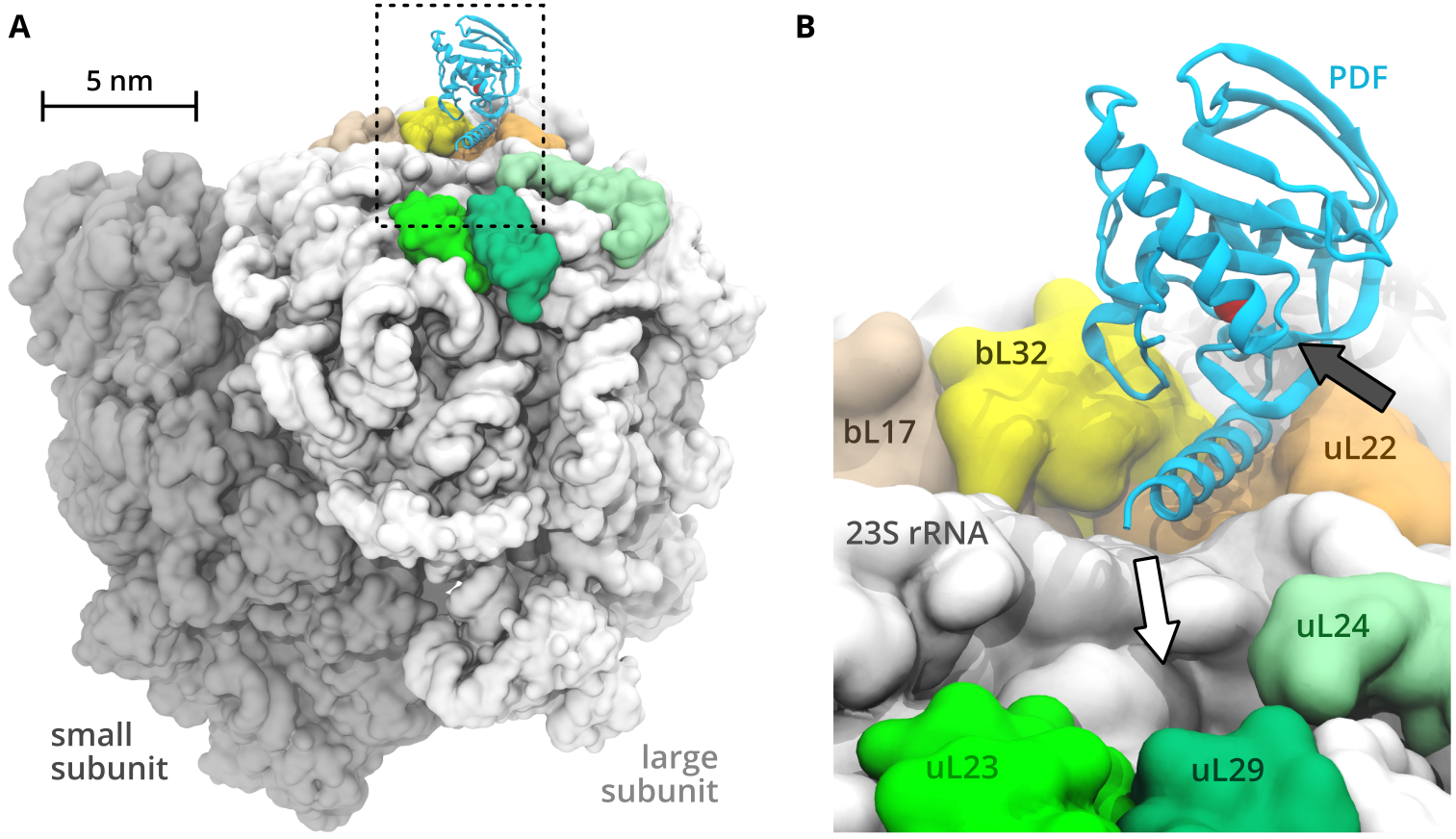
The first engineer from our group
published 2022-08-10
We are utterly happy that Tereza has defended his diploma thesis and became the first engineer, who finished with Michal.
Tereza started in the group after completing her bachelor in Forensic analysis. She quickly learned how to run GROMACS and performed extensive simulations of the ribosome exit tunnel. In her thesis, she tried to build Markov state models of the tunnel dynamics. We're still working on it, stay tuned.
Two bachelor theses defended with honors
published 2022-07-25
Two students from our group obtained their BSc. with honors. Warmest congratulations to Petr and Honza!
Petr is a Běstvina alumnus, who has finished the Chemistry program. During bachelor studies, he learned how to run MD simulations in GROMACS. He performed and analyzed simulations of the uL22 ribosomal protein. Honza has also finished the Chemistry program. For his thesis, he pythoned a Monte Carlo scheme to derive partial atomic charges. Both guys continue at UCT Prague for their Master degrees, enrolling the Data engineering study program.
Small publication about a large set of molecules
published 2022-02-13
A new publication has emerged from Aneta's bachelor thesis. The electrostatic potential around halogens is anisotropic, which possesses a challenge for molecular mechanical models with partial charges fitted by RESP or similar techniques. The anisotropy – known as a σ-hole – is modeled as a positive pseudo-atom. On a large set of molecules, we investigated how the pseudo-atom affects other partial charges in the molecule. We show that the effect is spatially localized to atoms within three covalent bonds from the halogen.
Full paper (most likely behind a paywall): J. Comput. Chem.
Preprint: arXiv
Sample data and scripts: github.com
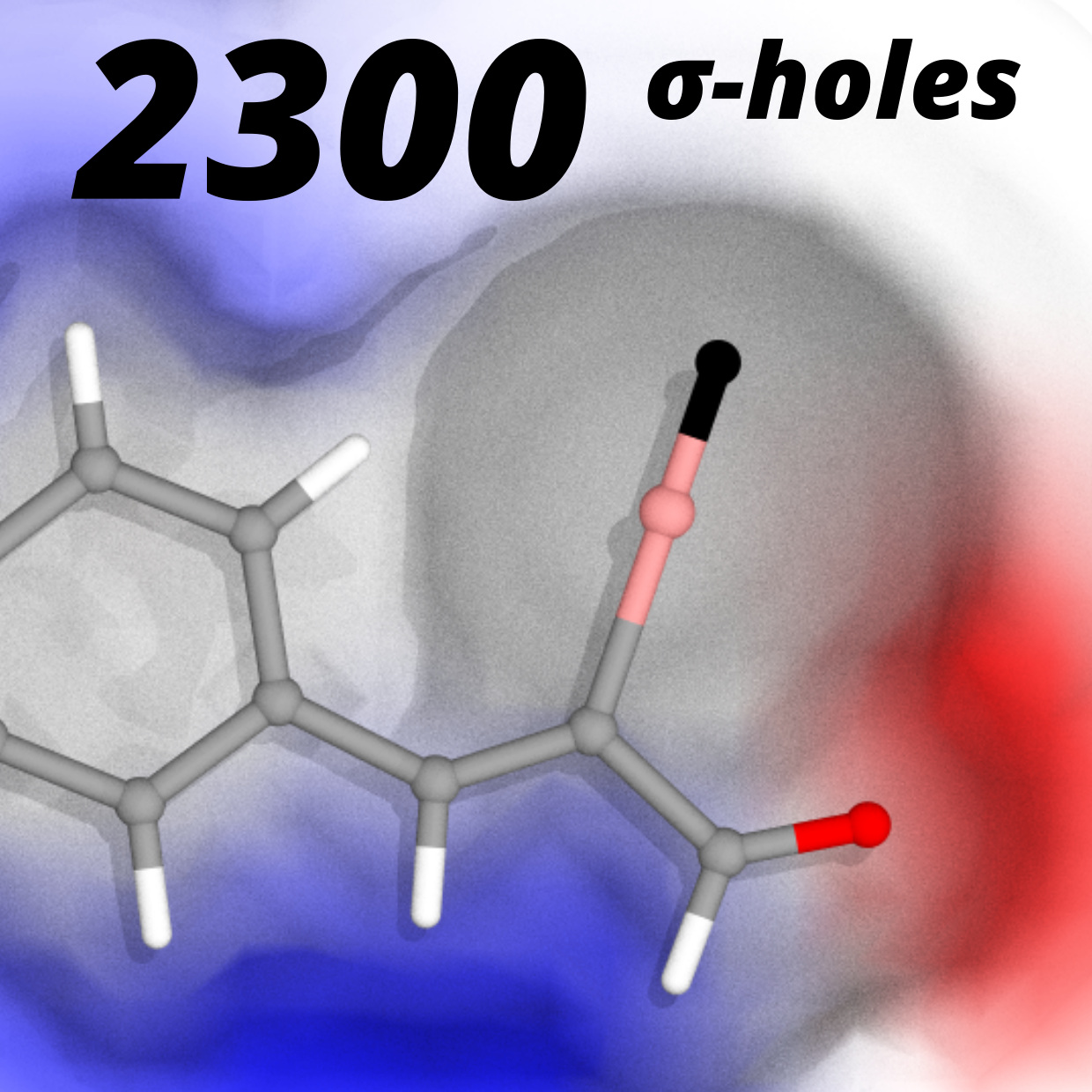
Students' success at research conference
published 2021-12-02
Tereza Svatoňová and Petr Linhart have received 2nd place in their sections of the Students' research competition at UCT Prague. Congratulations!
Tereza is a MSc. student of Sensorics and cybernetics in chemistry. She studies ribosome tunnel and the ribosomal proteins that contribute to the tunnel walls. Petr is finishing his BSc. studies of Chemistry. He focuses on a fragment of a ribosomal protein uL22 to describe its folding-unfolding equilibrium.
Michal presented on the 5th Users' meeting of IT4Innovations
published 2021-11-09
At short notice, the conference was turned online due to COVID (sure you knew it). Michal introduced computer simulations of large biomolecular complexes and presented some results of Hugo and Michaela about peptide deformylase. Slides are available on here (mostly figures, though).
The first moments in the life of protein
published 2021-10-15
Proteins are synthesized on ribosomes in a process called translation. It takes seconds before the complete protein is released from the ribosome. Michal reviewed the events that happend during translation, co called co-transationally, for the Czech audience. It mostly rests on what he talked about on the Summer school for high-school teachers and students.
Full paper is available online: Chemické listy 2021 (PDF).

